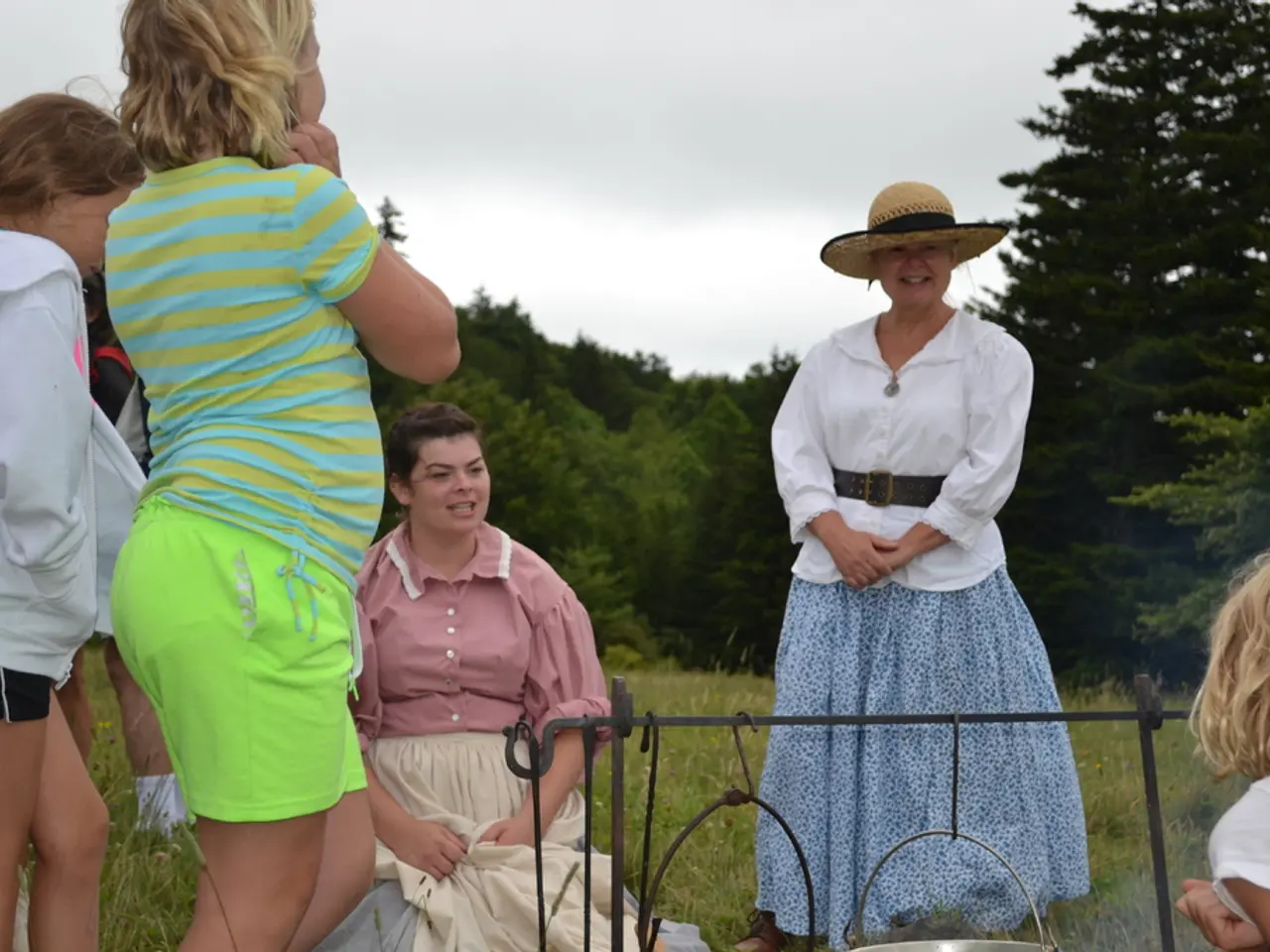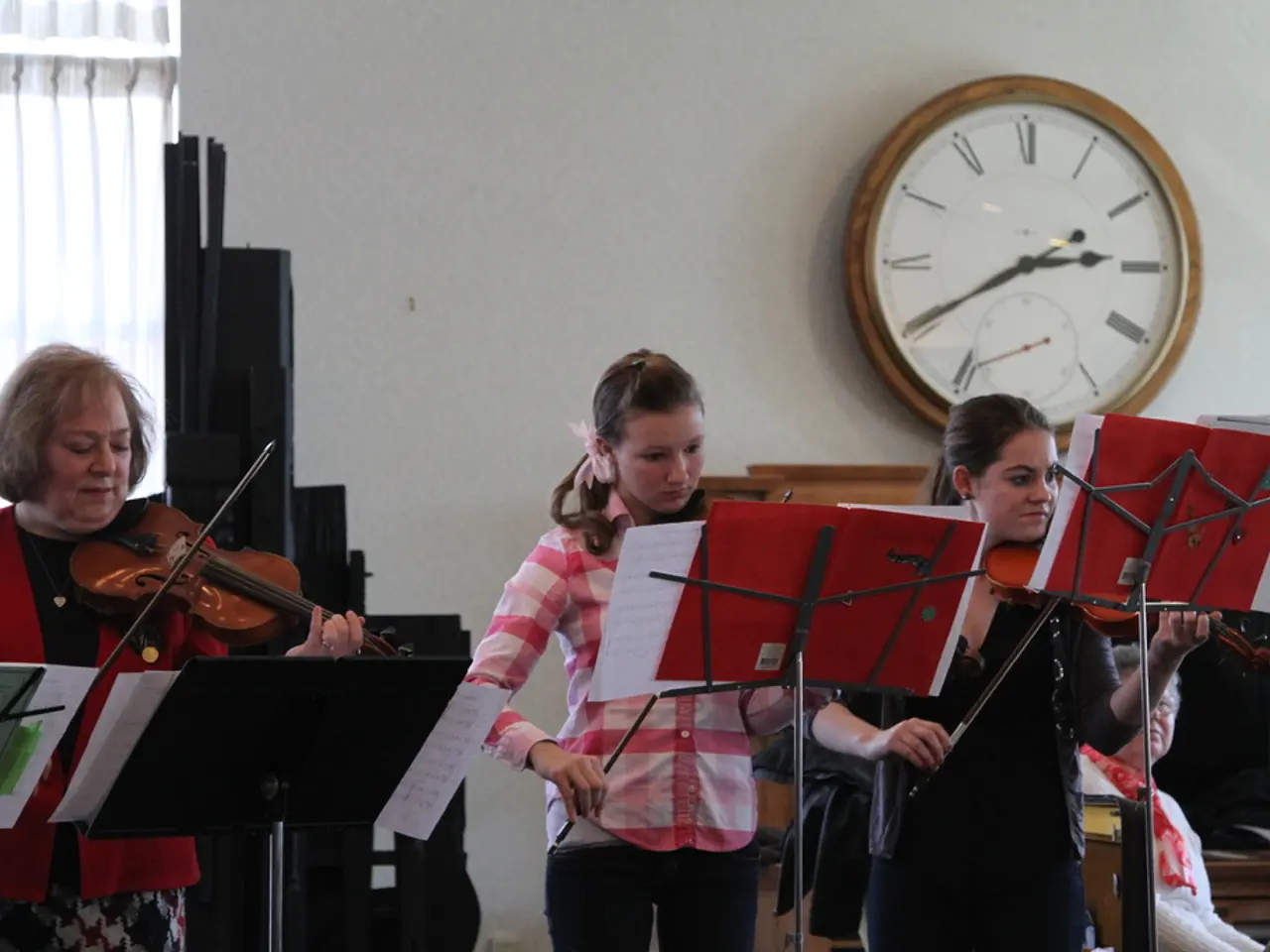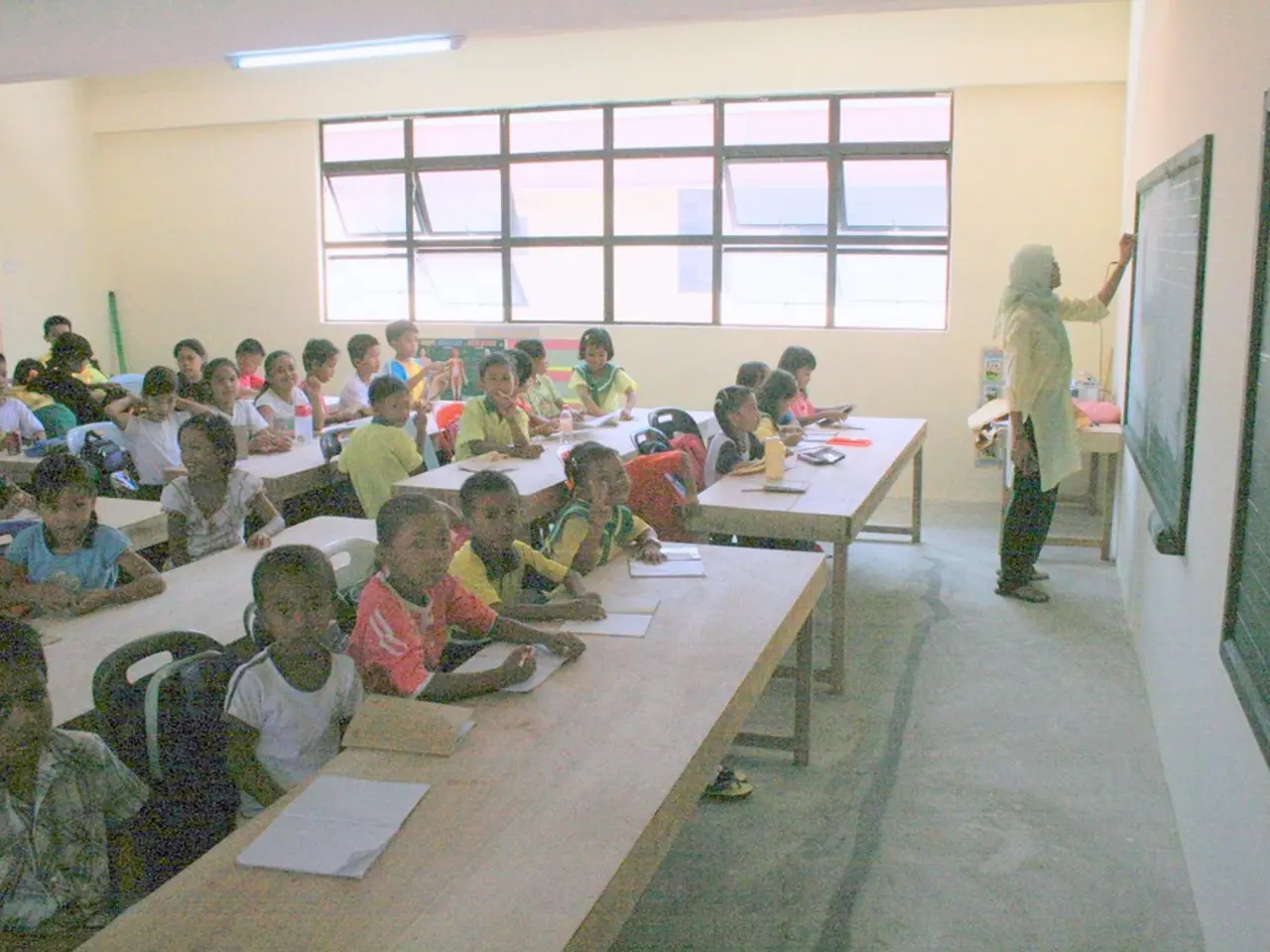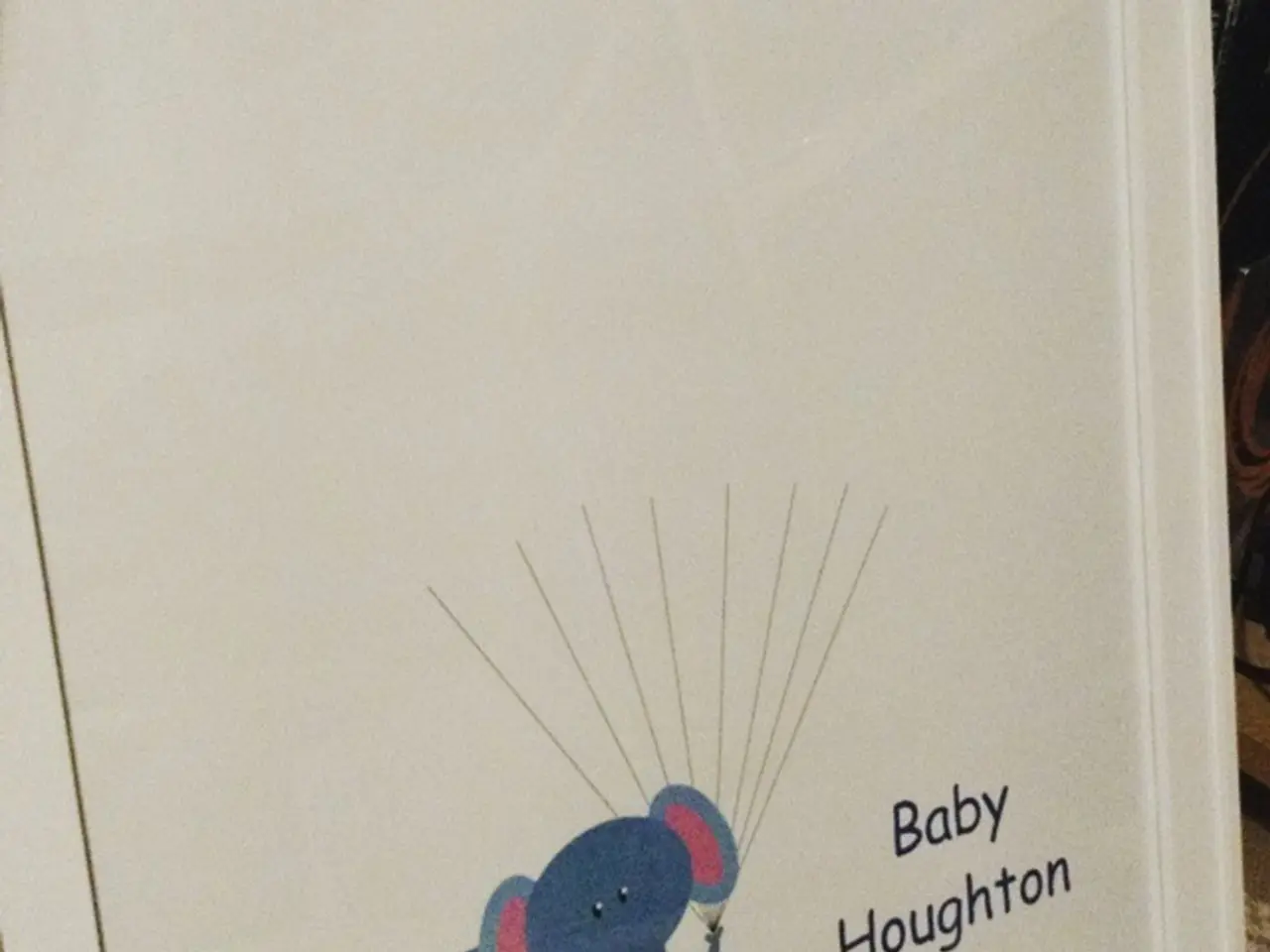Nurturing Parents is Key to Nurturing Children
In many hunter-gatherer societies, such as the BaYaka and Himba herders of Southern Africa, childcare is a communal responsibility, contrasting sharply with individualistic societies like those in Europe and the United States.
The BaYaka, a collective name for several forest-living forager groups west of the Congo River, provide a striking example of this communal approach. In their society, many "allomothers"—caregivers other than the biological mother—play a significant role in childcare. Approximately 40% of close care (holding, soothing) is provided by these allomothers, often other children, not just adults[1].
This communal childcare system extends beyond the immediate family. On average, each child has around 14 people within arm’s reach throughout the day[1]. Learning to care for others is a communal endeavour, with older children teaching younger ones essential survival skills. This peer-driven learning reinforces early cooperation and interdependence, as the community's collaborative foraging and food-sharing practices depend on it[5].
In contrast, individualistic societies rely more on a small circle of adult caregivers, with less peer participation and greater burden on parents. Caregiving roles are primarily the responsibility of adults, especially parents and formal or paid caregivers. Children rarely participate in caring for younger siblings or peers beyond occasional play.
Emotional support is also shared more broadly in hunter-gatherer societies. Mothers respond to just under half of all infant crying bouts, with the rest addressed by allomothers—often through unique soothing techniques like drumming or yodeling[1]. This responsibility for emotional regulation is thus broadly shared.
The philosophical underpinnings of these two approaches reflect their respective social ethics. The community's survival depends on high levels of cooperation and interdependence in hunter-gatherer societies, leading to a collective responsibility for childcare. In contrast, the emphasis on self-sufficiency and personal responsibility in individualistic societies results in more private, nuclear-family–based care.
| Aspect | Hunter-Gatherer (BaYaka) | Individualistic (Europe, U.S.) | |-------------------------|-----------------------------------------|-------------------------------------| | Caregivers | Many “allomothers,” often other children | Mostly parents, some formal care | | Network Size | Large (ca. 14 daily contacts) | Small (nuclear family) | | Child Participation | Significant, learned early | Minimal, mostly adult-led | | Skill Transmission | Peer-to-peer, communal | Adult-to-child, formalized | | Emotional Support | Broadly shared, mother < 50% | Mother primary, less shared | | Social Ethic | Cooperation, interdependence | Self-sufficiency, individualism |
The BaYaka, who live in the northern Republic of Congo and speak the Mbendjele language, obtain most of their food from wild plants and animals, and also trade forest resources for commercial goods with neighboring Bantu farmers. They reside in campsites, with huts built from branches and leaves.
Among the BaYaka, older children often help care for young ones, providing a form of work-life balance for mothers. Bebuna, a woman in her 60s, is capable of producing milk indefinitely while breastfeeding, a trait shared by many women in the community.
The BaYaka have a set way to raise children, which eliminates the burden of decision-making for parents. Child and maternal mortality remain high in contemporary hunter-gatherer populations, but the communal approach to childcare may contribute to the resilience of these societies.
The largest population of hunter-gatherers in the world, an estimated 920,000 people, live across Central Africa. Allonursing, or breastfeeding someone else's baby, is a widespread practice among Central African hunter-gatherers, including the BaYaka.
The author wishes their parenting lessons had followed a gentler slope, stretched across their lifespan, like the BaYaka's. BaYaka children have more experience in parenting than many new mothers in cities across Europe and the U.S., a testament to the effectiveness of their communal childcare system.
[1] Hill, K., Hurtado, A. M., & Kaplan, H. (2011). The evolution of human life history: Trade-offs in growth, reproduction, and parenting. Annual Review of Anthropology, 40, 303-320.
[5] Hawkes, K., O'Connell, J. F., Blurton Jones, N. G., & Charnov, E. L. (1998). Hunter-gatherer life history: A model of adaptive foraging and its implications for human evolution. Current Anthropology, 39(3), 271-297.
The BaYaka society, contrasting with individualistic societies, employs a communal system of health-and-wellness, where the responsibility of childcare is shared among many "allomothers" and older children. In this lifestyle, education-and-self-development occurs through peer-to-peer learning, fostering cooperation and interdependence. In sharp contrast, individualistic societies place more weight on the role of parents in childcare and education, relying less on communal efforts.




